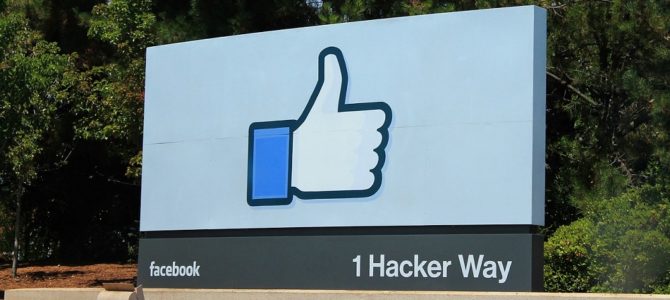
You probably know at least one person who gave up social media for Lent this year. Now that Facebook is facing a monstrous privacy scandal after reports of a political firm improperly collecting and using the data of up to 50 million users, #DeleteFacebook is making the rounds on Twitter.
Although Facebook is facing intense criticism over this (as they should), it’s nothing new. If it’s causing you to delete Facebook now, you are about six years too late. According to a Time magazine article on the 2012 Barack Obama campaign, an incredibly successful app the digital team employed gave “more than 1 million Obama backers who signed up for the app gave the campaign permission to look at their Facebook friend lists.”
This is exactly the tool Cambridge Analytica employed to get data for the friends of the more than 300,000 people who took a personality quiz used in the data mining. If you think things like this aren’t happening on other platforms, just wait for the news reports. If you plan to #DeleteFacebook, add Twitter, Instagram, LinkedIn, and every other platform to your list.
The Obama campaign (now dispersed into other organizations) still has that information and, according to a New York Times reporter investigating the scandal, much of the data for this kind of experiment is good for years. Your data is already being used every single day by thousands of companies across the company and the world, even if you weren’t one of the millions affected by this particular scandal. You gave it to them.
Most People Willingly Trade Data for Fun
Like nicotine, coffee, and big government, our digital drugs have a pretty bad rep, but each of us stokes the negative social media firestorm with the decisions we make, including how liberally we’ve chosen to express ourselves on the platforms. But it’s not just the data breeches, it’s every other complaint heard echoing down the virtual hallway about social media weariness.
While people endlessly complain about the political rants of “friends” and morally superior posts about everything from breastfeeding to gun control, they fail to realize that there’s far more to social media than just the steady stream of garbage and ads that Facebook plops directly on your screen. If you are using social media of any kind, you are getting played (and always have been), but for most people, the benefits of these tools will outweigh the detriments.
There are about a million settings on your Facebook account, giving you options for things like “see this page first” or tagging your closest friends and family to show up more frequently in your newsfeed. You can turn on and off notifications for various groups and pages. You can block pages, people, or “things like this” from popping up, and mute comments or ask to remove posts that keep showing up over and over.
Go through and “unlike” pages or brands that get on your nerves. If that one guy you bartended with in college shares perpetually false and hateful memes, by all means, block him! Talk back to social media like you’re the boss (‘cause you are.) Mark Zuckerberg isn’t controlling your newsfeed—you are. If you spot a fishy ad or one you just don’t like, flag it, report it, ask not to see it again. Pay attention.
You Partially Control Your Own Data Stream
Yes, the most obnoxious postings do make their way into your feed because the algorithm, stupid! But the algorithm isn’t your online dictator, so don’t let it control your consumption.
If you are lazy about your social media habits, they will take you for all you’re worth. If you let social media happen to you instead of taking advantage of what it has to offer, it will be a dumpster fire. They key is molding your own social media experience so it benefits you, instead of making you despise both Big Facebook and that cheerleader from high school you just can’t get yourself to delete.
Like many things in life, you are the master of your own destiny, social media survival included. You are also the deliverer of your own personal data on these platforms and willingly gave it up with every like, app sign-in, quiz, petition, game, or question you answered about which character on “Mad Men” you would be.
It’s not your fault that your data was used improperly, but you never should have trusted Facebook (or any social platform) to protect it in the first place. We need increased regulation, clearly, but bad actors are nearly always going to be able to breach those foundations. It’s the sad reality of living in the digital age, so choose wisely what you want to share. The “next Facebook” will not protect you any more than the one we have right now.
We Get Things We Like In Exchange for Data Mining
I’m still a proponent of keeping your account intact and using it for the benefits that do exist on a personal level. There is so much good stuff to be found on social media, Facebook specifically. Yes, keeping up with those baby photos and long-distance friendships is one, but there’s far more, especially for those seeking specific kinds of support. The group function may be the one main reason to hold out.
As a pregnant mom for the first time, someone added me to a group called “Prego: Been There, Am There, Will Be There,” and it was the first group I’d really engaged with. I have posted there over the past few years and received a ton of advice and encouragement for various mommy issues.
As the wife of man who struggles with bipolar disorder, I joined an online support group called “Spouses/Partner of Depressed/Bipolar People,” and was relieved to find people who actually understood how I felt. I’m not sure how else I would have tapped into the kind of support I found there.
Most recently, I felt alone when I decided against breastfeeding for my second baby. I didn’t know anyone who chose to formula feed, and felt like I needed to find some like-minded mommas who understood. I searched for a “formula feeding moms” group and instantly found one. Within 24 hours of giving birth, I posted how I was feeling there and received no less than 50 comments from mommas with support and love.
Facebook Groups Can Offer a Lot
Many groups are well-regulated with a host of rules posted intentionally to help avoid group arguments or truly offensive postings. These are necessary and helpful, so find groups like that. I find that in general people are hyper-aware of being respectful (with a few exceptions) and you can often strike up private conversations with people who are in similar situations that you’d have no way of finding otherwise.
I’m in a couple of prayer groups, making it easy for me to submit requests or send up quick prayers for others in need. As someone who works in online marketing, I also get a lot out of a group designed specifically for social media professionals.
Outside of groups, I engage with pages and people I like and even those I disagree with because I don’t believe anyone should live in an echo chamber. If your social media feed is just a bunch of voices that sound like your own, it’s time to make a change. Now you know you have plenty of power to do so.
And let’s not forget that for many lonely souls, social media is sometimes one of the only places they can find love and support in a hard moment. A few encouraging comments from social media friends can be exactly what someone needs when he or she chooses to be vulnerable in an online post. Some believe social media does the opposite for struggling individuals, but I’ve witnessed it as a place of solace for many.
You can choose to hide from the Internet or engage wisely (and skeptical of platform providers) and to your own benefit. The world isn’t getting any less digital, so I think social media is a frenemy worth keeping.









